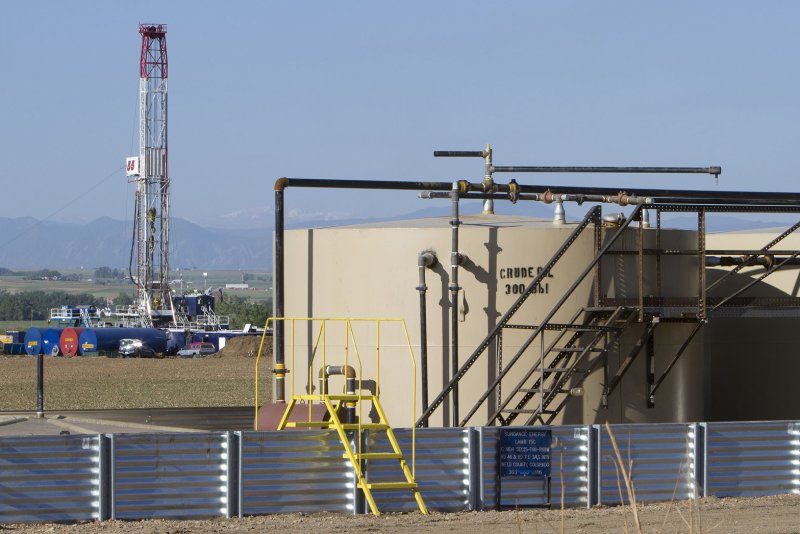A drilling rig operates on farmland near a storage tank at the Niobrara oil shale formation in Weld County, Northeastern Colorado. Gas and oil companies are using large amounts of water to obtain shale oil and gas in a process called hydraulic fracturing, or fracking. File photo by Gary C. Caskey/UPI |
License Photo
WASHINGTON, June 4 (UPI) -- The Environmental Protection Agency has found no "widespread, systemic" impact on drinking water supplies as a result of the use of hydraulic fracturing, or fracking, to drill for oil and gas in underground rock structures, according to a five-year study on the practice.
The draft study, published on the EPA website Thursday, acknowledges risks to drinking water from fracking, however it says the confirmed cases of contaminated drinking water is "small compared to the number of hydraulically fractured wells."
Hydraulic fracturing involves pumping injection fluids into rock formations to create spaces for oil and gas to rise from underground, up through production wells and to the surface. Injection fluids consist of water, chemicals and "proppant," generally sand, which holds open the fractured rocks so that oil and gas can move upward.
Congress asked the agency to mount the study due to concerns and some reports of contaminated drinking water near wells. The report said more than 9 million Americans live within one mile of a fracking well.
Tom Burke, EPA's science adviser and deputy assistant administrator of EPA's Office of Research and Development, said on a conference call with reportes the assessment is meant to inform future decisions about fracking and that the report is not a judgment on fracking itself.
"This is a study of how we can best protect our water resources. It's not a question of safe or unsafe," he said. "What we also learned was that surrounding water sources may be vulnerable to impacts, and these vulnerabilities should be considered."
Burke said the five-year study is the most "complete compilation of scientific data to date," involving the review of more than 950 sources in addition to studies undertaken by EPA for the report.















